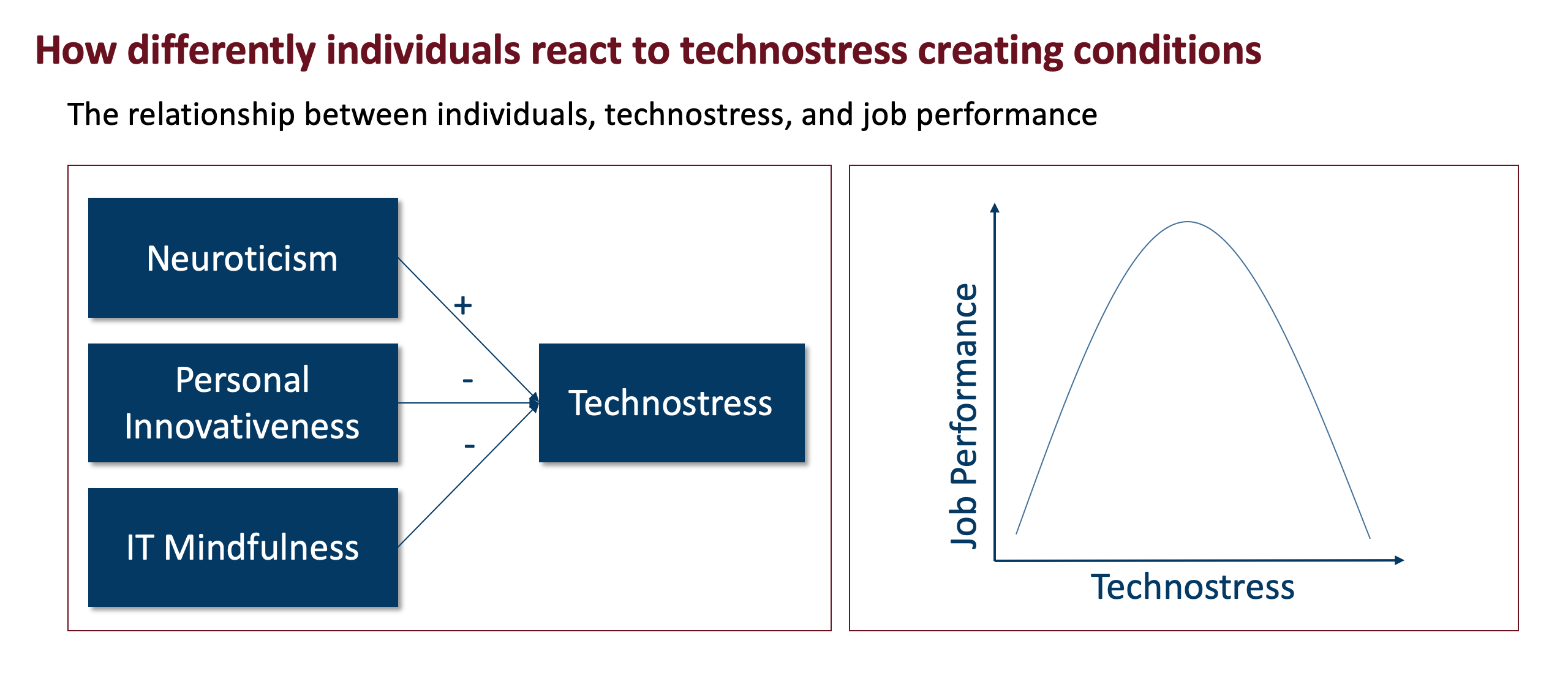Study on Technostress in Companies published in the European Journal of Information Systems (EJIS)
Prof. Dr. Sven Laumer, holder of the Schöller Endowed Chair of Information Systems, together with Dr. Christian Maier, Jakob Wirth and Prof. Dr. Tim Weitzel (each from the University of Bamberg) has published a new study “Technostress and the Hierarchical Levels of Personality: A Two-wave Study with Multiple Data Samples” in the European Journal of Information Systems. In this study, Sven Laumer and his colleagues address the extent to which personality traits influence stress perception during IT use and its consequences.
Using two data sets it is shown that and how different personality traits – especially IT mindfulness, but also personal innovativeness in IT and neuroticism – influence the perception of stress during the use of IT. It is hereby emphasized that technology-induced stress is not only caused by technological features, but also lies in the person himself. In addition, the study shows that there is a reverse U-shaped course between technostress and user performance, so that a certain amount of technostress has a positive effect on performance.
From a practical point of view, it is particularly interesting that techno stress depends very much on the IT mindfulness of the individual. The study shows that when a person is mindful of IT in general, it is less likely that that person will perceive techno-stress. This means that through general measures that promote IT mindfulness, companies can implement preventive measures to avoid Technostress.
The study is published in the European Journal of Information Systems (EJIS). This is one of the six most important international scientific journals in business informatics (see AIS Senior Basket of Eight) and according to the JourQual-3 ranking is an A journal with an impact factor of 3,197.
Author team: Christian Maier, Sven Laumer, Jakob Wirth and Tim Weitzel
DOI: https://doi.org/10.1080/0960085X.2019.1614739
Abstract: Even though IS use has numerous benefits for users and organizations, such as improved user performance and greater productivity, an increasing number of users experience IS use as a source of stress, i.e. technostress. Since such technostress can result in decreased user well-being, it is important to understand what leads users to perceive it. Psychology research suggests personality as a cause of stress perception and recent technostress research points to the relationship between personality traits and the perception of technostress as a research gap. Given that personality traits are structured hierarchically, this investigation studies how and which levels of user personality influence the perception of technostress. In developing our research model, we select personality traits from the three hierarchical levels of personality: neuroticism, personal innovativeness in IT (PIIT), and IT mindfulness. The results of two two-wave studies analyzing data collected in an organizational setting (sample 1) and through mTurk (sample 2) reveal that all three personality traits significantly influence the perception of technostress, with IT mindfulness having the strongest impact. This study contributes to technostress research by revealing that user personality and, primarily, IT mindfulness influence the perception of technostress. Additionally, our findings reveal an inverted u-curved influence of techno-stressors on user performance, deepening our understanding of how the perception of technostress influences user reactions. This has practical implications for organizations in terms of preventing IS use-related job burnout, an indicator of reduced well-being, averting weakening user performance, a barrier to organizational success, and increasing IT mindfulness.
